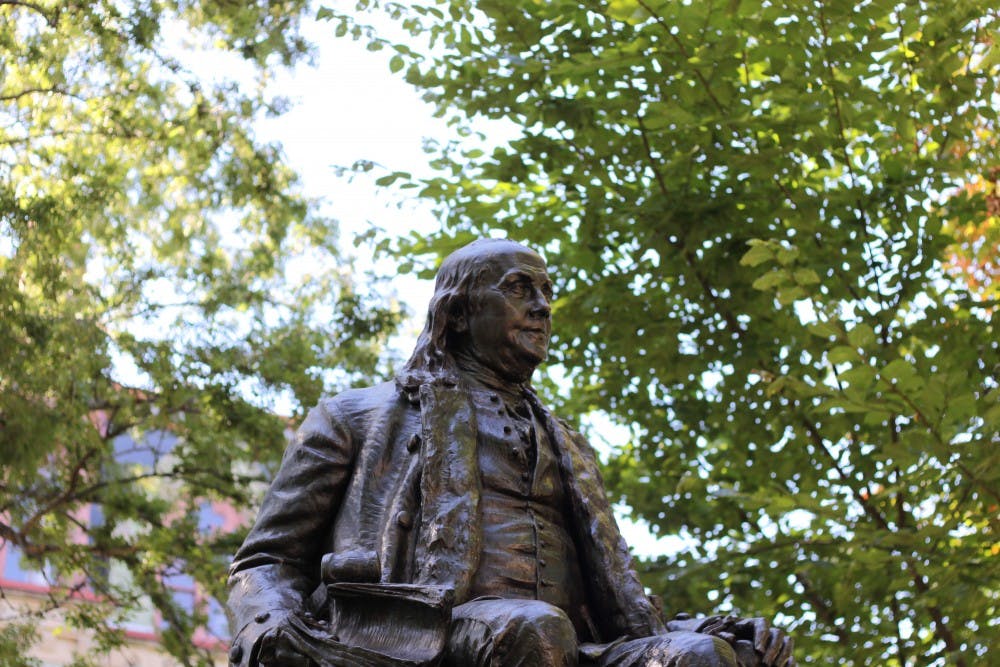"When I tell people I was homeschooled, either they’re like, ‘oh you’re so lucky, you got to sit around on the couch all day and eat chocolates,’ or they’re like ‘oh, poor you, your parents must’ve been so strict; you must’ve never been allowed outside to see the sun,” College sophomore Lena Greenberg said.
Greenberg was homeschooled from kindergarten through 12th grade, and now she studies linguistics and Arabic at Penn. She said her experience in homeschool was like neither of the two extremes.
Although homeschooled students didn’t go to a conventional high school, their application process to Penn is similar to those who did.
Many have already taken college classes before, through their local community college. Often former homeschooled students participate in extracurriculars at local public schools or through homeschooled groups.
Penn “encourages applicants from a growing number of homeschool students.” Although homeschool has been a growing trend for the last decade, Dean of Admissions Eric Furda estimated that Penn receives only about 20 applications per year from homeschooled students. He stressed that the figure was not exact.

Homeschooled students must provide a “consolidated transcript” that outlines all academic work and often includes more information than a typical high school transcript. Grading scales, reading lists and detailed course descriptions provide context for a college evaluating not only a student’s grades, but also the rigor of a homeschool curriculum.
“In some ways there’s even more narrative around a homeschool application,” Furda said. The application is generally more evaluation-based.
The Secondary School Report, normally completed by a high school counselor, is often filled out by a homeschooled student’s parent or homeschool coordinator further explaining the program. Additionally, there are certifications that legitimize graduation from a homeschool, but the requirements vary state by state.
“You need some data,” Furda said. “And so for a student who has taken any standardized tests, it’s best to report all the tests to us, because you do need some anchor that is nationally based.”
“People have this idea that the feeling of sitting in a classroom and listening to a teacher talking is something you can only do well if you’ve been doing it since you were five years old,” Greenberg said, “and it’s really not like that. It’s not very hard to learn to be in a classroom.”
Like many homeschooled students, Greenberg supplemented her education at home with online classes and classes at the Community College of Philadelphia.
Engineering sophomore Christopher Hendry was also homeschooled from K-12. Like Greenberg, he also received a high school diploma from the State of Pennsylvania and used an independent agency to verify his transcript. He self-studied his way through homeschool and took online classes.
“We had a pretty strong integrity-based system,” Hendry said about his grades. “We also had a pretty strict schedule. We had to be in a certain room of the house at 9 a.m.”
Hendry ran track and cross-country for a local public school while he was homeschooled. He also was involved in with the church in his native Philadelphia.
“My mom was a savage, and she gave me a C in Spanish,” Hendry said.
Nathan Emery is a sophomore in the Huntsman Program in International Studies and Business who lives with Hendry and was homeschooled until college. Emery was homeschooled in high school primarily through a mixture of tutors, online classes and some self-study from his house in southern New Jersey.
“Mostly they just wonder who taught you, like ‘how did you actually learn?’” Emery said about other students. “So it’s not really misconceptions, it’s more like, ‘how did that work?’”
Hendry and his older brother, who was almost homeschooled, used the help of a homeschool counseling service to formalize his transcript before he applied to Penn in the summer of his senior year.
Despite the difference in school setting, the college application process is largely similar for students from conventional high school and homeschool settings. Online classes, whether the totality of schooling or in tandem, help create verified transcripts and achieve academic benchmarks while blurring the lines between a conventional and nonconventional school experience.
“It’s not just a religious thing; it’s not just a political thing,” Greenberg said about homeschool. “It’s really an individual thing.”









